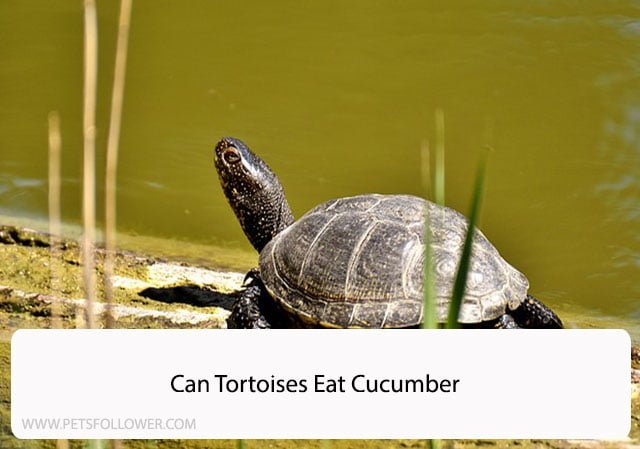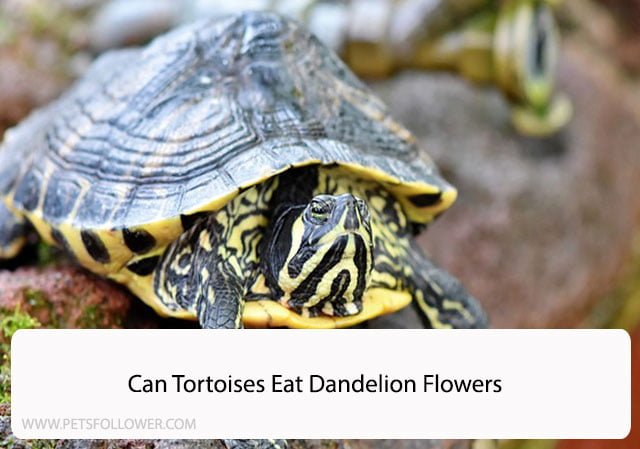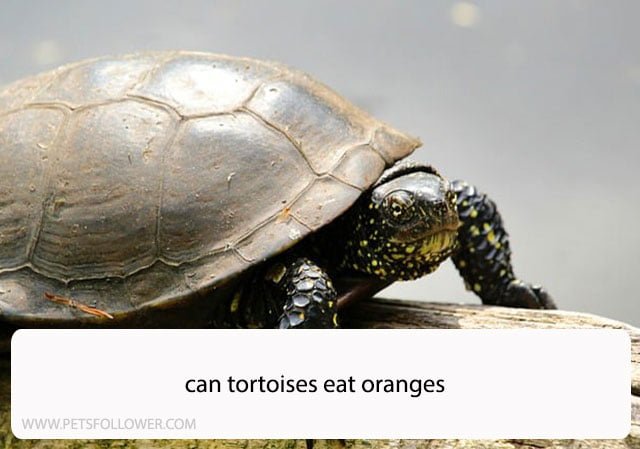Tortoises are herbivores and can eat a variety of fruits and vegetables as part of their diet. However, not all fruits and vegetables are suitable for tortoises, and some may even be harmful to their health. One fruit that many tortoise owners may wonder about is pineapple. Can tortoises eat pineapple?
The answer is yes, tortoises can eat pineapple, but it should be given in moderation. Pineapple is high in natural sugars and acidic, which can cause digestive issues and diarrhea in tortoises if given in excess. It is recommended to only offer pineapple as an occasional treat, and in small amounts.
When feeding pineapple to tortoises, it is important to remove the skin and core, as they are both hard to digest and can cause blockages in the digestive system. The flesh of the pineapple can be cut into small pieces and mixed with other fruits and vegetables to provide a balanced diet for the tortoise. As with any new food, it is important to introduce pineapple slowly and monitor the tortoise’s reaction to ensure they can tolerate it well.
Understanding Tortoise Diets
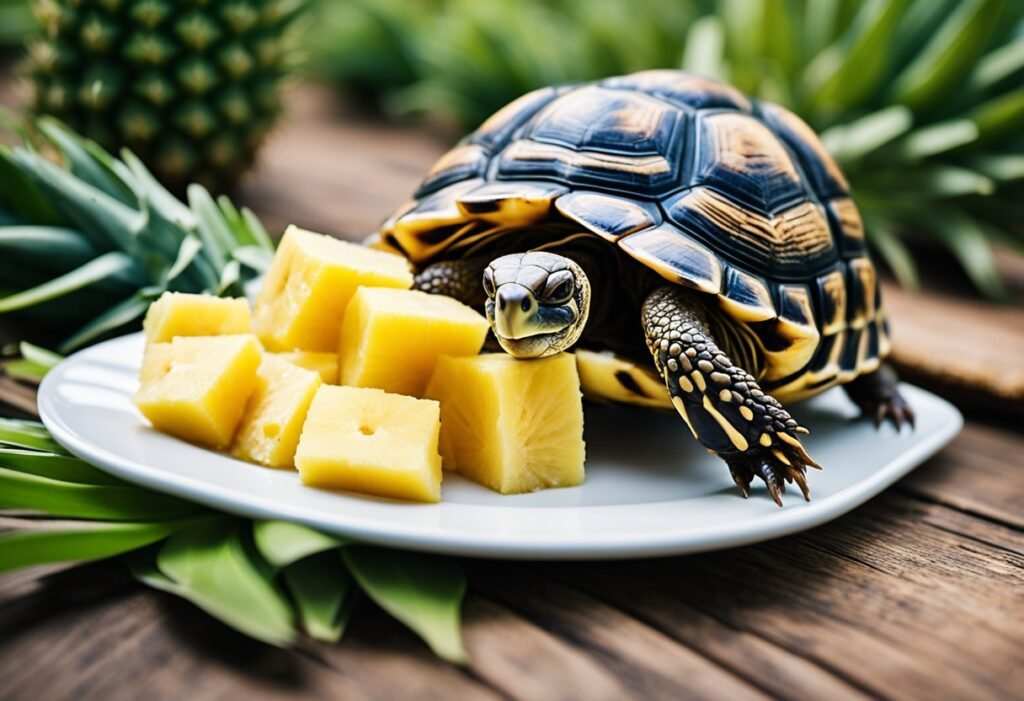
When it comes to feeding tortoises, it’s essential to understand their dietary needs. In the wild, tortoises have a varied diet, consisting of different plants, fruits, and vegetables. As a result, it’s crucial to replicate their natural diet as much as possible when feeding them in captivity.
General Tortoise Diet
Tortoises are herbivores, which means they only eat plants. Their diet should consist of a variety of greens, vegetables, and fruits. Some of the best options for a tortoise’s diet include:
- Dark leafy greens such as kale, collard greens, and mustard greens
- Vegetables such as carrots, squash, and sweet potatoes
- Fruits such as bananas, apples, and strawberries
It’s essential to avoid feeding tortoises foods that are high in protein or fat, such as meat or dairy products. These foods can cause digestive problems and lead to health issues in the long run.
Specific Tortoise Species Diets
Different species of tortoises have different dietary needs. For example, the diet of a Russian tortoise is different from that of a Sulcata tortoise. Therefore, it’s essential to research the specific dietary needs of your tortoise’s species and adjust its diet accordingly.
For instance, some tortoises require more fiber in their diet than others, while some require more calcium. Some tortoises also require a specific ratio of calcium to phosphorus in their diet to maintain healthy bones and shells.
In conclusion, understanding the dietary needs of your tortoise is crucial to its overall health and well-being. By providing a varied diet that replicates its natural diet as much as possible, you can ensure that your tortoise stays healthy and happy.
Can Tortoises Eat Pineapple?
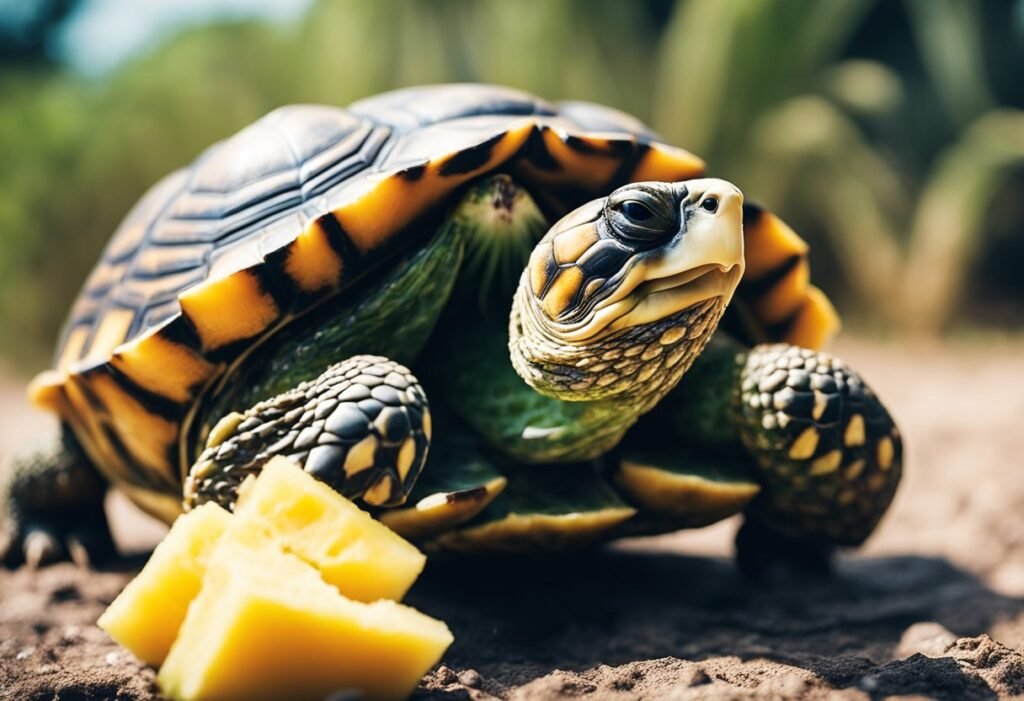
We have researched and found that tortoises can eat pineapple, but it should only be given to them occasionally and in small amounts. Pineapple contains high levels of sugar and acid, which can be harmful to tortoises if consumed in excess.
It is important to note that pineapple should not be a staple in a tortoise’s diet. Tortoises require a diet that is high in fiber and low in sugar. Pineapple should only be given as an occasional treat and should not make up a significant portion of their diet.
When feeding pineapple to tortoises, it is important to remove the skin and core, as they can be difficult for tortoises to digest. It is also important to cut the pineapple into small, bite-sized pieces to make it easier for the tortoise to eat.
In summary, while tortoises can eat pineapple, it should only be given to them in moderation and as an occasional treat. It is important to remove the skin and core and cut the pineapple into small pieces to make it easier for the tortoise to eat.
Effects of Pineapple on Tortoise Health
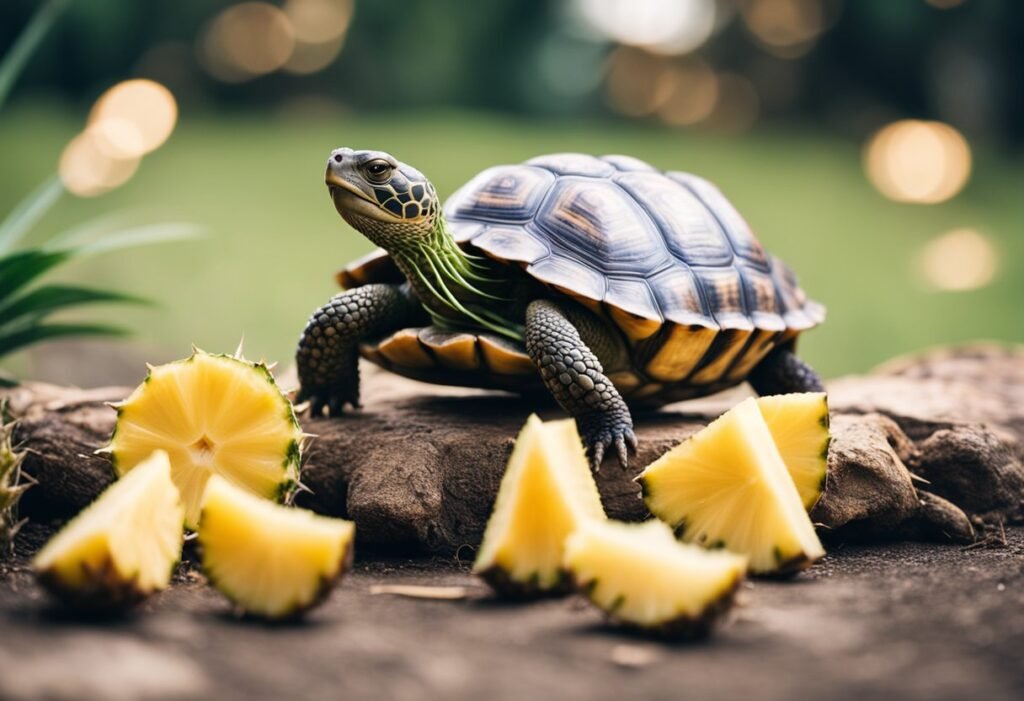
Nutritional Value
Pineapple contains various nutrients that can benefit a tortoise’s health when fed in moderation. Pineapple is a good source of vitamin C, which helps boost the immune system and aids in the absorption of iron. It also contains vitamin A, which is essential for healthy eyesight and skin, and potassium, which helps regulate blood pressure and supports proper muscle and nerve function.
However, it is important to note that pineapple should not be the primary source of these nutrients in a tortoise’s diet. A balanced diet that includes a variety of vegetables and fruits is necessary to ensure a tortoise gets all the nutrients it needs.
Potential Health Risks
While pineapple can provide some health benefits, it can also pose some potential risks to a tortoise’s health. Pineapple contains high amounts of natural sugars and acids, which can cause digestive issues if consumed in excess.
Additionally, pineapple contains a compound called bromelain, which can cause mouth sores and inflammation in some animals. It is important to monitor a tortoise’s reaction to pineapple and discontinue feeding if any negative symptoms arise.
In conclusion, pineapple can provide some nutritional benefits to a tortoise’s diet when fed in moderation. However, it is important to monitor a tortoise’s reaction and not make it the primary source of nutrients.
Safe Fruits for Tortoises
As tortoise owners, we want to ensure that our pets have a balanced and healthy diet. While it’s important to provide them with a variety of foods, it’s also crucial to ensure that the food we give them is safe and won’t harm them.
When it comes to fruits, there are some that are safe for tortoises to eat, and others that should be avoided. Here are some safe fruits that you can give to your tortoise:
- Apples
- Berries (strawberries, raspberries, blueberries, etc.)
- Melons (watermelon, cantaloupe, honeydew)
- Mangoes
- Papayas
- Pears
It’s important to note that while these fruits are safe for tortoises to eat, they should be given in moderation as part of a balanced diet. Too much fruit can lead to health problems such as diarrhea and obesity.
When feeding your tortoise fruit, make sure to cut it into small pieces to make it easier for them to eat and digest. It’s also important to remove any seeds or pits, as these can be harmful to your tortoise.
In summary, there are several safe fruits that you can give to your tortoise as part of a balanced diet. Remember to feed them in moderation and always remove any seeds or pits before giving it to them.
Conclusion
In conclusion, pineapples can be a healthy and tasty treat for tortoises when given in moderation. They are a good source of vitamin C, manganese, and fiber, which can contribute to a well-balanced diet for your pet. However, it is important to remember that pineapples are high in sugar and acidity, so too much can cause digestive issues or other health problems.
As with any new food, it is important to introduce pineapples slowly and monitor your tortoise’s reaction. Start with a small amount and gradually increase over time. If you notice any negative reactions such as diarrhea or vomiting, stop feeding pineapples immediately and consult with a veterinarian.
When feeding pineapples to your tortoise, make sure to remove the skin and core, as they can be difficult to digest and may cause choking hazards. Also, be sure to wash the fruit thoroughly to remove any pesticides or other contaminants.
Overall, pineapples can be a healthy and enjoyable addition to your tortoise’s diet when given in moderation and with proper preparation.
Frequently Asked Questions
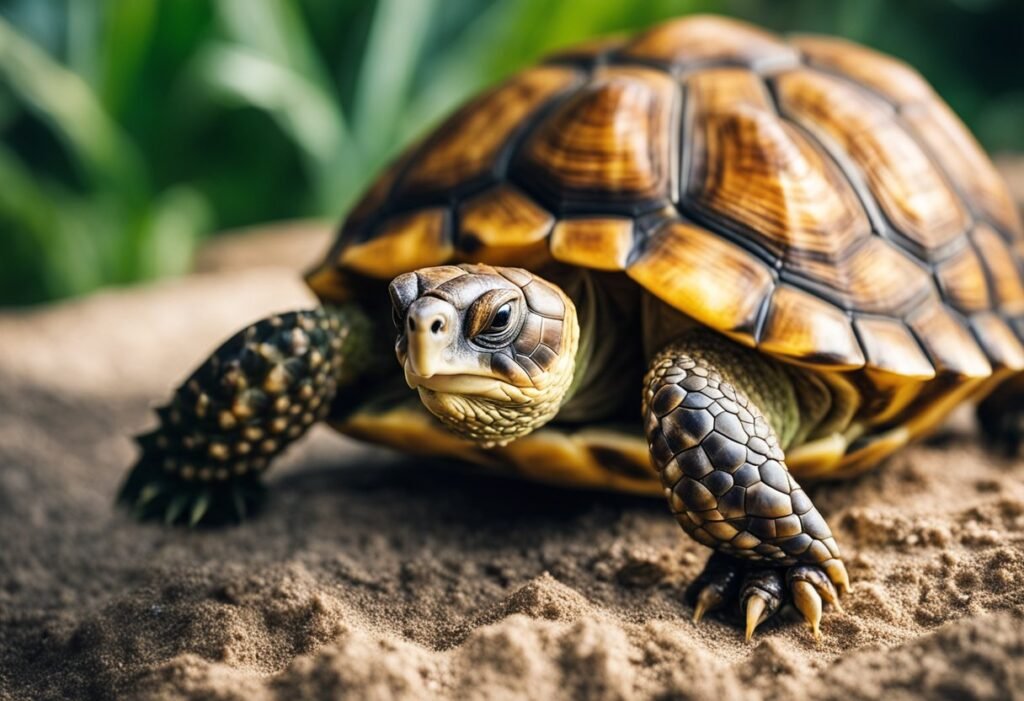
What fruits are safe for tortoises?
Tortoises can eat a variety of fruits, but it is important to remember that fruits should not make up the majority of their diet. Safe fruits for tortoises include apples, bananas, blueberries, strawberries, and melons. It is important to remove any seeds or pits from the fruit before feeding it to your tortoise.
What vegetables can tortoises eat?
Tortoises should have a diet that is primarily made up of vegetables. Safe vegetables for tortoises include dark leafy greens like kale and collard greens, carrots, squash, and green beans. It is important to avoid feeding your tortoise any vegetables that are high in oxalic acid, such as spinach.
Can red footed tortoises eat pineapple?
Yes, red footed tortoises can eat pineapple in moderation. Pineapple is high in sugar, so it should only be given as an occasional treat.
Can Russian tortoises eat pineapple?
Yes, Russian tortoises can eat pineapple in moderation. Pineapple is high in sugar, so it should only be given as an occasional treat.
Can leopard tortoises eat pineapple?
Yes, leopard tortoises can eat pineapple in moderation. Pineapple is high in sugar, so it should only be given as an occasional treat.
Are there any fruits that tortoises should avoid?
Yes, there are some fruits that tortoises should avoid. These include citrus fruits like oranges and grapefruits, as well as fruits that are high in sugar, such as grapes and cherries. It is important to remember that fruits should not make up the majority of your tortoise’s diet and should only be given as an occasional treat.



